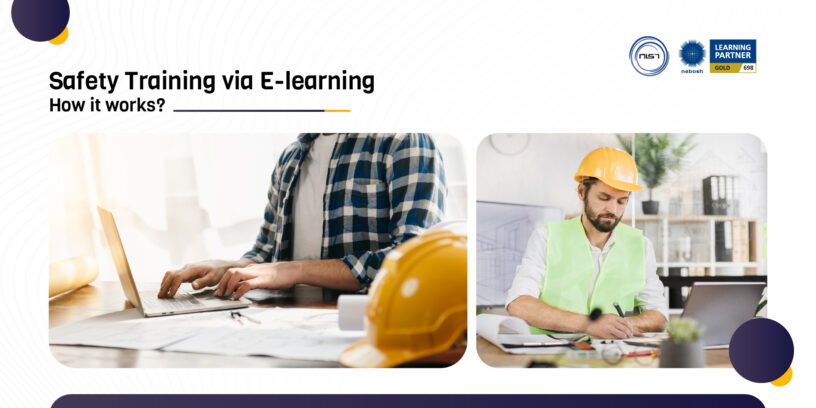E-learning has a significant role on the evolution of safety training in various ways, bringing about improvements in effectiveness, accessibility, engagement, and efficiency. Here are some of the key reasons why e-learning is important for safety training:
Accessibility and Flexibility:
E-learning allows safety training materials to be accessible online, making it easier for learners to access the content from anywhere and at any time. This flexibility is particularly important in industries where employees may work different shifts or locations. Workers can complete safety training at their own pace, reducing scheduling conflicts and the need for physical classroom attendance.
Cost-Effective:
E-learning can significantly reduce the costs associated with traditional classroom training, such as travel expenses, printed materials, and facility rentals. This is especially important for organizations with limited budgets, as it allows them to allocate resources more efficiently.
Standardization:
E-learning enables organizations to maintain consistent safety training content and materials across multiple locations. Standardized training ensures that all employees receive the same information and have a similar level of understanding, which is crucial for maintaining safety standards.
Tracking and Reporting:
Many e-learning platforms offer tools for tracking and reporting learner progress and performance. This allows safety managers and administrators to monitor individual and group training progress, identify areas of improvement, and ensure compliance with safety regulations.
Interactive and Engaging Content:
E-learning courses can include interactive elements such as quizzes, simulations, videos, and real-life scenarios that engage learners and enhance comprehension. Engaging content is more likely to be retained, making safety training more effective.
Updates and Revisions:
The safety sector is subject to evolving regulations, technologies, and best practices. E-learning platforms can be updated more easily and quickly than printed materials or in-person training, ensuring that training content remains current and relevant.
Immediate Feedback:
E-learning often provides immediate feedback to learners, helping them understand their strengths and areas that need improvement. This quick feedback loop can lead to a more effective learning experience and improved safety performance.
Scalability:
E-learning can be scaled to accommodate a large number of learners, making it suitable for organizations of all sizes. This scalability is especially valuable for industries with a high turnover rate or expanding operations.
Reduced Risk of Injury:
By providing comprehensive and accessible safety training, e-learning can help reduce the risk of workplace injuries and accidents. Well-trained employees are more likely to follow safety protocols and make informed decisions in hazardous situations.
Regulatory Compliance:
Many industries have strict safety regulations and compliance requirements. E-learning platforms can help organizations demonstrate their commitment to compliance by tracking and documenting training efforts, making it easier to meet regulatory standards.
In summary, e-learning is essential in the safety sector because it offers accessibility, cost savings, standardization, tracking, engagement, and the ability to keep training materials up to date. These advantages contribute to a safer work environment, reduced risks, and overall improved safety performance for organizations and their employees.
SHE Digital Services @ NIST Global
NIST offers tailored E-learning content creation services with a strong focus on interactivity, designed to meet the specific requirements of corporate clients. The underlying philosophy of our E-learning content development is to bridge the knowledge and skill gaps through engaging, personalized learning experiences. Traditional lecture-style classroom training has evolved into captivating hybrid self-paced courses that encourage active and interactive learning, transforming the way knowledge is imparted.
If you are already thinking about taking your organizational safety training needs to the next level of latest technology, call us right away @ 91 8754465588 or email us at info@nistglobal.com. We’re here to assist you!














Leave a Reply